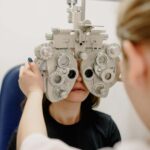70,000 Kiwis are currently living with dementia, and this number is projected to skyrocket to 170,000 by 2050. While these figures may seem daunting, there’s good news: dementia is not a normal or inevitable part of aging.
Our brains are remarkably resilient and capable of change throughout life—a phenomenon known as neuroplasticity. With the right habits, you can help your brain form new neural connections, protect your cognitive health, and reduce your risk of dementia.
In fact, new research from the 2024 Lancet Commission report reveals that:
45% of dementia cases could potentially be delayed or prevented by addressing specific risk factors.
Importantly, tackling these risks during mid-life (ages 18–65) has the greatest impact in reducing the likelihood of dementia later in life.
So, what can you do to protect your brain? Here are 14 evidence-based strategies:
 1. Increase Your Physical Activity
1. Increase Your Physical Activity
As we talk about a lot in Brainfit – Staying active supports blood flow to the brain, keeping neurons healthy and reducing dementia risk. Activities like walking, swimming, yoga, or cycling can make a significant difference. Whether you’re 18 or 80, regular physical activity is essential for both body and mind.
2. Quit Smoking
Smoking damages blood vessels, including those that supply the brain, increasing the risk of cognitive decline. The sooner you quit, the better for your brain health—it’s never too late to reap the benefits.
 3. Reduce Your Alcohol Consumption
3. Reduce Your Alcohol Consumption
Excessive drinking can harm brain cells and is linked to dementia. Moderation is key; consider limiting alcohol intake to promote long-term cognitive health.
4. Minimize Exposure to Air Pollution
Air pollutants, especially those from traffic, can damage the brain. Reduce your exposure by avoiding high-traffic areas, using air purifiers, and supporting clean-air initiatives in your community.
 5. Avoid Head Injuries
5. Avoid Head Injuries
Traumatic brain injuries increase dementia risk. Simple precautions like wearing helmets during activities and fall-proofing your home can go a long way in protecting your brain.
6. Increase Your Social Contact
At Brainfit we talk a lot about the importance of social connection for keeping your brain and memory sharp. That’s because isolation can accelerate cognitive decline. Regular interaction with others, whether through volunteering, joining community events, or catching up in person or via a video call, is crucial for keeping your brain sharp and healthy.
 7. Become a Lifelong Learner
7. Become a Lifelong Learner
Lower levels of education are associated with a higher risk of dementia. Continue challenging your brain with new skills, hobbies, or courses. From puzzles to learning a new language, every bit of mental exercise helps build “cognitive reserve” which offers protection against cognitive decline.
8. Manage Your Weight
Excess weight, particularly in mid-life, is linked to an increased dementia risk. A balanced diet and regular exercise are critical to maintaining a healthy weight and supporting your overall brain health.

 9. Monitor Your Blood Pressure
9. Monitor Your Blood Pressure
High blood pressure (hypertension) can damage the blood vessels in your brain, increasing dementia risk. Keep an eye on your numbers and manage your blood pressure through diet, exercise, and medication as needed.
10. Take Control of Your Blood Sugars
Type 2 diabetes increases the risk of dementia dramatically. Managing blood sugar levels through diet, exercise, and proper medication can reduce this risk and help protect your brain.
 11. Seek Mental Health Support
11. Seek Mental Health Support
Depression, particularly in mid-life, can increase dementia risk. If you’re struggling, reach out for support. Therapy, lifestyle changes, and medication can improve mental well-being and protect cognitive health.
12. Get Your Hearing Tested Regularly
Hearing loss is a major risk factor for dementia, as it can lead to social isolation and reduced mental stimulation. If you notice changes in your hearing, get checked and use hearing aids if necessary to help mitigate this risk.
 13. Get Your Eyes Tested
13. Get Your Eyes Tested
Untreated vision issues have recently been identified as a new dementia risk factor. Regular eye exams and corrective measures can help keep your vision and brain in top shape.
14. Maintain Healthy Cholesterol Levels
Elevated LDL (“bad”) cholesterol can harm brain health. Manage cholesterol through a nutritious diet, regular exercise, and prescribed medications if needed.
A Final Thought
Incorporating these steps into your daily life can significantly reduce your risk of developing dementia. It’s never too early—or too late—to start prioritizing brain health.
By staying physically active, nurturing social connections, managing health conditions, and embracing lifelong learning, you can take charge of your cognitive future and enjoy a better quality of life as you age.
Learn More and Take Action
Looking for more ways to boost your brain health? Explore our other articles on memory and cognitive wellness , or visit Dementia NZ to access resources and support.




